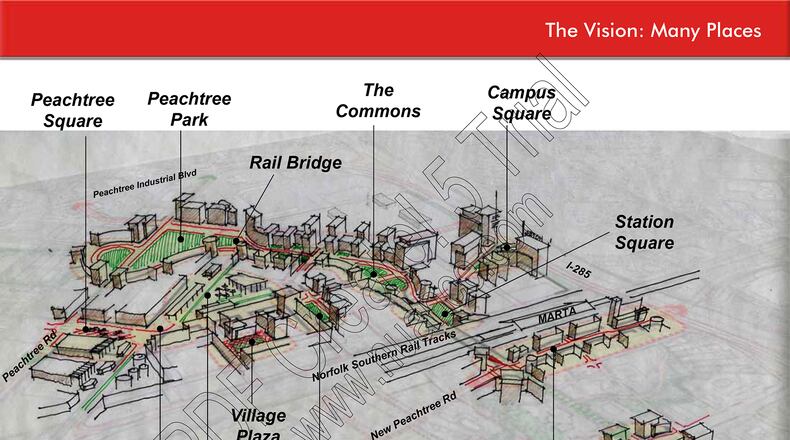Before DeKalb County agreed to invest in redeveloping the Doraville site of a demolished General Motors factory, the county government added protections for itself.
DeKalb won't contribute any tax money to $247 million worth of infrastructure upgrades unless the county school system signs on as well, according to the terms of the intergovernmental financing arrangement approved by the county commission Dec. 15. The Doraville City Council has already agreed to participate, but the DeKalb school board hasn't taken action.
DeKalb also added a clause to the deal that ends its participation in the redevelopment plan after 10 years — on Dec. 31, 2025 — unless the county votes to continue its investment. The site's developers envision infrastructure financing to last until 2040.
Government funding of the project would pay for infrastructure on the project that its developers, Integral Group, have said is necessary to attract businesses to the 165-acre site. Though a mechanism called a tax allocation district, bonds would be issued for the upgrades, and those bonds would be paid off through expected growth in property tax revenue. No existing tax money would be used to fund the project.
DeKalb would contribute about 22 percent of the financing, Doraville would pay about 21 percent, and the remaining 57 percent would come from the school district’s tax base.
If the school system declines to participate, potential public funding for the project would shrink considerably, jeopardizing plans to built a tunnel to the Doraville MARTA station and a street grid, among other improvements.
DeKalb’s government also wrote in provisions requiring that at least 20 percent of housing built on the site be affordable to families earning less than 80 percent of the Atlanta metro area’s median income.
About the Author
The Latest
Featured



